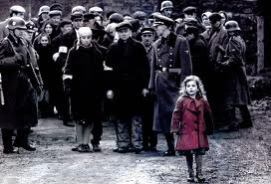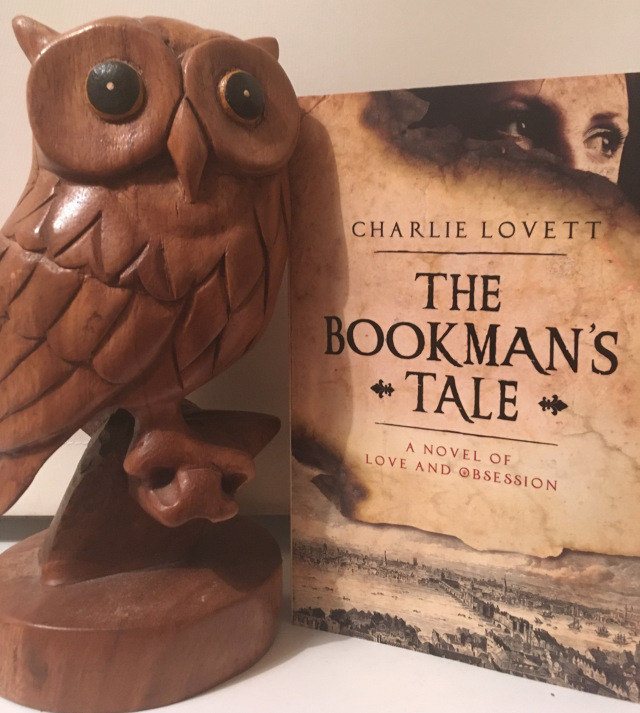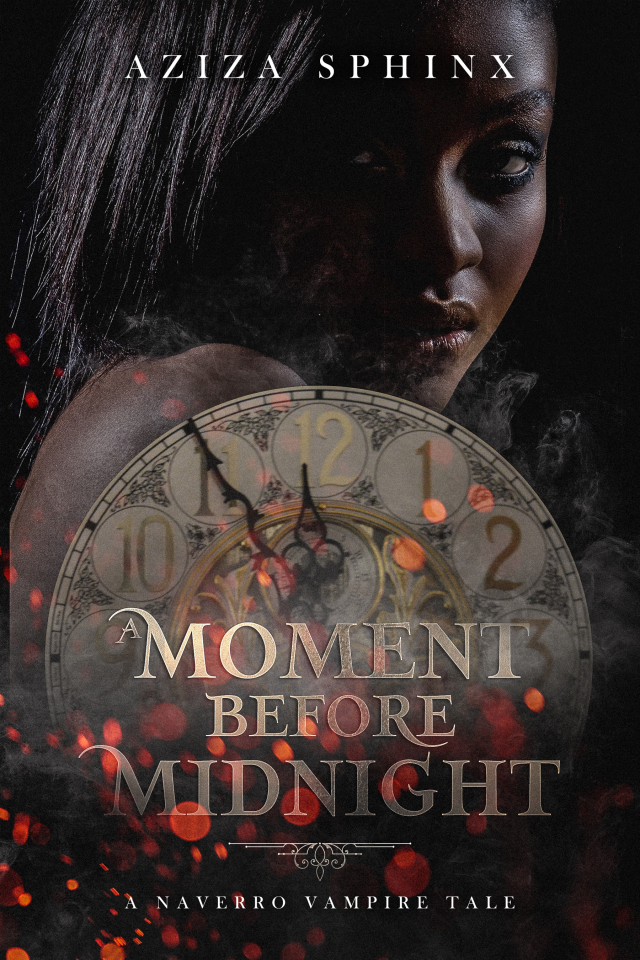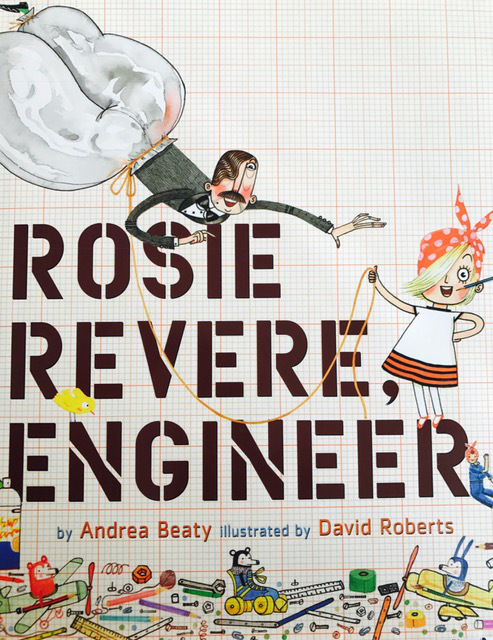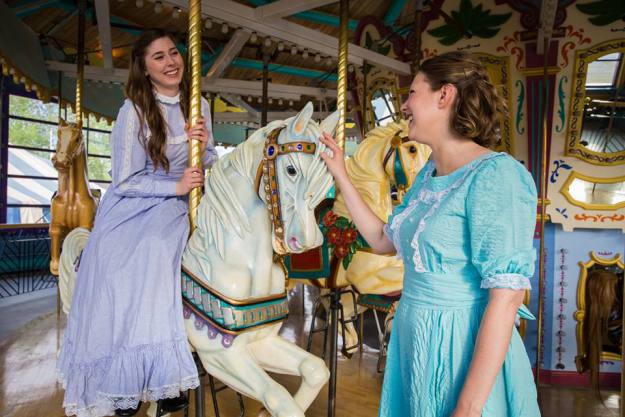TBS and TruTV are two channels I only typically watch when they take part in the National Holiday that is March Madness. However, as of late these co-owned cable outlets have been making waves in comedy nerd circles by becoming home to shows like People of Earth, Angie Tribeca, Search Party, The Detour (all TBS), Those Who Can’t, Adam Ruins Everything and Billy on the Street (all TruTV). That’s 5 uniquely inventive sitcoms and two showcases for hilarious and often insightful internet personalities.
Personally, though, I’ve only seen a little of Angie Tribeca (which is an unabashedly silly modern day Police Squad), and only know Adam and Billy through their various internet clips.That’s it. But after listening to an NPR joint review of TBS and TruTV’s latest efforts, The Guest Book and I’m Sorry, in the same week that TVGuide ran favorable write-ups about both shows I thought I’d jump on board with two of these comedies while they’re still getting started. The results were mixed.
First up: The Guest Book.
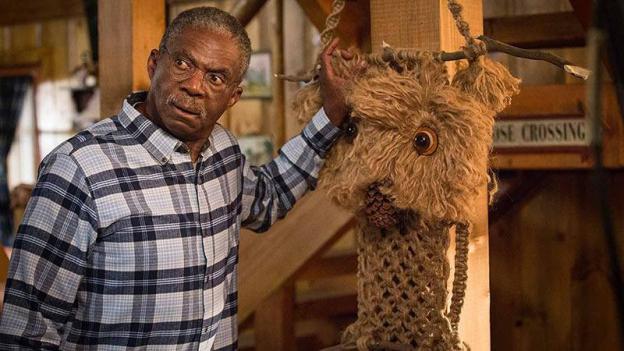
Much of the press about Guest Book thus far has obsessed over its hybrid anthology-serialized format. Each episode takes places at a cabin hotel in the mountains where city folk types stay while on vacation or on the run from something. The hotel staff, including Night Court’s Charles Robinson as the manager, recur in every episode as do the various quirky citizens of the small town, like a constantly-high delivery man (My Name is Earl’s Eddie Steeples), the local sheriff (ER’s Kellie Martin) and white stripper and black stepson who make big bucks blackmailing the tourists. However, each episode is primarily about a new guest or guests at the hotel, who recount their adventures through a lengthy message left in the guest book (hence the name of the show).
It’s an interesting format, one which experiments with serialization (e.g., Robinson’s interest in the local strip club in the first episode carries over into the second episode) but makes it a secondary concern to the parade of guest stars dropping in for one-and-done adventures. That Guest Book would arrive at exactly the same time as HBO’s Room 104, a straight anthology series about the quirky happenings in one specific hotel room over time, is an odd coincidence, yet Room 104 uses it format to switch genres from episode to episode, as befits the varied adventures happening in that damn room. Guest Book is more consistent. Watch one episode and you kind of know what to expect from the rest of the series, at least in terms of tone.
And that tone is one I’d describe as “amiable blandness.” Or, more accurately, have you ever seen My Name is Earl or Raising Hope, those mildly entertaining odes to the downtrodden and working class as filtered through the comedic lense of someone (Earl/Hope and now Book creator Greg Garcia) who cut his teeth creating and writing such forgettable, yet long-running fare as Yes, Dear? That’s pretty much what you get from Guest Book as well. It’s a comedy bereft of edge or overt cleverness, instead informed by pleasantness and tried-and-true joke construction. Typically, this style of comedy only transcends the ho-hum words on the page with the right performers, e.g., Jason Lee and Jamie Pressley in Earl, Martha Plimpton and Cloris Leachman in Hope. Luckily, several Earl and Hope alums have already or will soon pop up on Book, but if the first two episodes are any indication it won’t really matter because this is just one giant yawn of a show.
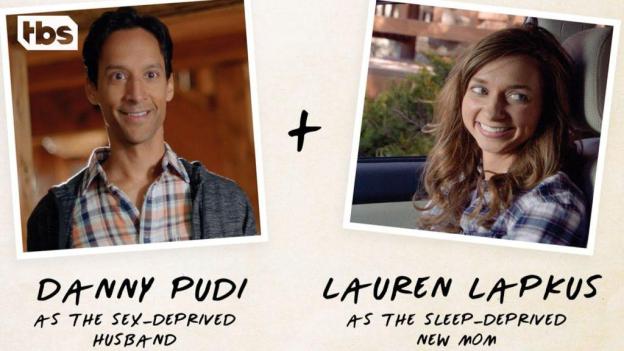
The first episode features Danny Pudi and Lauren Lapkus as new parents in desperate need of a vacation away from their baby, especially since Lapkus can’t stop yelling at Pudi. Women, amiright? Or so the joke seems to go over and over and over again as a supremely talented comedienne like Lapkus is stuck playing out warmed over 80s material about the women who nag and the men who will do anything to get away from them (until sex is put back on the table). The only thing which separates this from its past sitcom origins is the fact that we’re watching a mixed-race couple play this out, what with Pudi being half-Polish, half-Indian. He ends getting sucked into the local strip club’s tape-dudes-getting-lapdances-and-threaten-to-show-the-tape-to-their-wife blackmail scheme, and has some zany adventures trying to get out of that while keeping his white hot rage machine of a wife in the dark. None of it is particularly funny and makes seriously poor use of such inspired casting.
The second episodes stars Stockard Channing (!) as a devout Catholic treating her son and his atheist fiance to a weekend trip when in fact she’s secretly planning to baptize her soon-to-be daughter-in-law in her sleep. It’s a pretty wicked twist, one which (like the Pudi episode) trades mostly on the guilty doing anything to evade being caught style of comedy, but it never really rises above being the type of episode best used as background noise while working on the computer. The third episode begins with Michaela Watkins writing in the guest book, which is always a good start, but by that point I didn’t care about this little town, its crazies, the beleaguered hotel owners or the stunt cast guest stars. I’d seen enough and moved on to…
Second up: I’m Sorry.

Ever since I learned Andrea Savage had to bow out of Party Down after the original pilot and give up her role to Lizzy Caplan due to pregnancy I’ve had this odd need to see her succeed. It’s not so much that Caplan came along and took the career Savage should have had. They’re two very different performers. Savage wouldn’t have been right for Masters of Sex just as Caplan would have been all kinds of wrong as Senator/President Montez on Veep. However, Party Down was the type of show watched by everyone in Hollywood (and no one outside of it) and led to many auditions and bigger things for Caplan, Jane Lynch and Adam Scott. Savage, meanwhile, has been sentenced to character actress-ville even though she steals every scene she ever does. There’s always something about her which screams “Give that woman her own show, now!”
But these days you don’t wait to be given something, not when there are so many outlets desperate for content. Just create something of your own and it’ll probably find a home, which is exactly what Savage has done with I’m Sorry.
She plays a comedy writer with a husband, young daughter and group of friends who’ve clearly grown accustomed to her Larry David-esque propensity for inadvertently talking her way into sticky social situations and then just digging herself deeper when she tries to talk her way out of it. It’s loosely autobiographical and is peppered on the edges with several of her frequent co-stars/collaborators, such as The League/Sleeping with Other People/The House co-star Jason Mantzoukas as her dryly amused writing partner.
Similar to Guest Book’s anthology angle, I’m Sorry has a hook to help it stand out, which is that the episodes indulge in rather vulgar language. The two episodes I watched each began with disclaimers warning as much, and the very first scene of the series (included in the above clip) goes for the shock-and-ha with Andrea’s precocious daughter asking about the effects of childbirth on a woman’s vagina even though they’re eating at a public restaurant closely surrounded by strangers. In truth, though, this aspect of the show might be a tad overblown as there’s nothing here which is remotely out of bounds to the type of content you can see on an average FX show, particularly The League. It’s not that I’m Sorry is especially notable in this department; it’s that it stands out because it’s an FX-style comedy airing on a different network, one not used to such frank and R-Rated language.
Yeah, but is it funny?
Eh, kind of.
Rave review, I know, but I’m Sorry is a show still figuring itself out, doing its best to shake free of Curb Your Enthusiasm-clone syndrome. The differences, of course, are that no one on I’m Sorry is actually playing themselves, the social faux pas moments always relate to parenting instead of the everyday travails of a childless old Jewish guy with money and a trophy wife and Savage’s character is usually seeking to avoid hurting someone’s feelings whereas David was quite often more concerned about his own feelings and slights to his character. However, the comedic DNA is familiar enough that I’m Sorry feels like something a Groundlings-trained improv comedienne comes up with when her real life includes more traditional domesticity than Larry David’s.
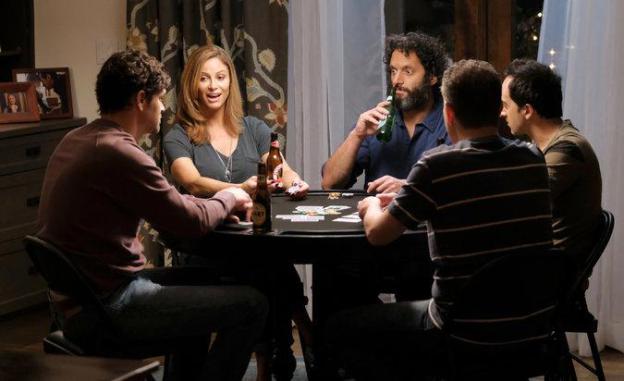
The focus on parenting is different enough from Curb (and Savage has a different enough energy) to help I’m Sorry stand on its own, but it can still sometimes feel a tad too familiar with comedic payoffs you see coming a mile away. For example, you know pretty quickly in the pilot that Savage’s “I swear I don’t normally curse like that” claims to June Squibb (as a kindly grandma at a birthday party) will soon be met with a scene where Savage curses like a sailor without realizing Squibb is right behind her, or that Savage’s apparently racist daughter will do something incredibly embarrassing in front of the one person of color at the dinner party thrown by Savage’s real estate broker husband in the second episode. But you also keep watching to see if they’ll do anything clever with those obvious pay-offs, and even if they don’t you’re still interested to see Savage’s horrified reactions and subsequent failed apologies, which are usually priceless.
And after everything I’ve seen I’ll be sticking with I’m Sorry to see it most likely improve as it goes along and serves as Savage’s long-deserved breakthrough. The Guest Book, though, eh, maybe if I need to put something on in the background while cleaning…maybe.
Have you seen either of these shows? If so, take to the comments to let me know what you think. Did I come down too hard on Guest Book? Let I’m Sorry off too easy? Or am I just wrong, wrong, wrong about everything I said?
Advertisements